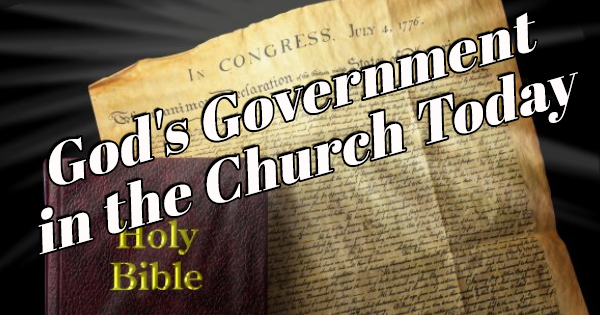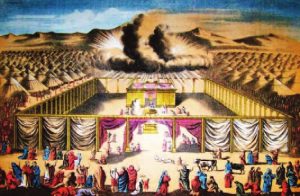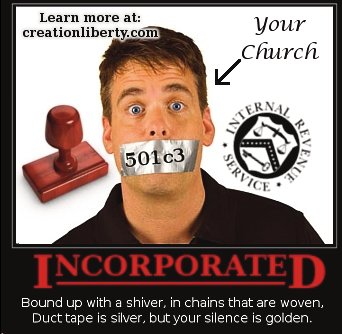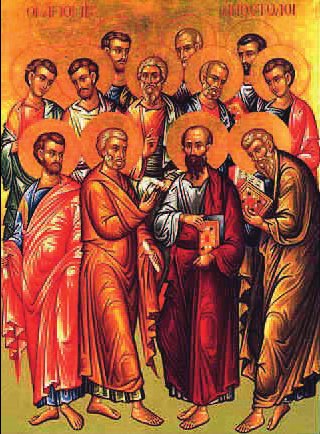
God’s Government for the Church Today
The topic of government is a major one for God’s people because it defines their relationship to each other, to the Father, and to Jesus Christ. Government is defined in several ways, such as “the exercise of authority over a state, district, organization, or institution; direction; control; rule; a system of ruling or controlling” (Webster’s New World College Dictionary, Wylie Publishing, Cleveland, Ohio, 2004). Notice that the dictionary indicates the word involves “ruling”, “controlling”, or “exercising authority over” others, which is what, government has come to mean in this world of Satan’s.
However, our great God in heaven turns this world on its head in about every possible way when it comes to relationships. Is the hierarchical system of men ruling over men in any way applicable to God’s people? Is it ever implied in His word? We need to find out because of the wide ramifications of this extremely critical topic.
What God Tells Us in His Word
We today are called “sons of God” (Matthew 5:9; Romans 8:14, 28; Galatians 3:28; 4:6). Being sons of the very One that made us, we ought to live today as if we were spirits already and interrelate with one another on the highest spiritual level. Our Creator instructs us to do just that, and He does so by revealing proper government within the ecclesia. Let us examine these things He reveals to us. Be aware that none of the points mentioned can be separated from the other points; they comprise a whole.
A) We are brothers of one another, and younger brothers of Jesus Christ.
Roman’s 8:29. “For whom He foreknew, He also predestined to be conformed to the image of His Son, that He might be the firstborn among many brethren.”

Mark 3:23-35. “But He answered them, saying, ‘Who is My mother, or My brothers?’ And He looked around in a circle at those who sat about Him, and said, ‘Here are My mother and My brothers! For whoever does the will of God is My brother and My sister and mother.’”
Colossians 1:18. “And He is the head of the body, the church, who is the beginning, the firstborn from the dead, that in all things He may have the preeminence.”
Revelation 1:5. “… and from Jesus Christ, the faithful witness, the firstborn from the dead, and the ruler over the kings of the earth. To Him who loved us and washed us from our sins in His own blood.”
Jesus Christ is not ashamed to call the ecclesia brethren, sons of the Father, just as He is. What a tremendous truth to fathom, that our beloved Savior, who came from the spirit world to this earth and lived as a human being amongst us, emptied Himself of spirit existence so we might have eternal life alongside Him on a brother to brother level!
B) We are to take on the character of Christ, and serve one another with our spiritual gifts (see also point D). It is difficult for us to know the depth and breadth of the love our Father and Elder Brother have for us. Without the spirit of God, it is impossible to grasp it. Even with that spirit, we are prone in our human nature to not trust His word.
of Christ, and serve one another with our spiritual gifts (see also point D). It is difficult for us to know the depth and breadth of the love our Father and Elder Brother have for us. Without the spirit of God, it is impossible to grasp it. Even with that spirit, we are prone in our human nature to not trust His word.
Galatians 5:22-23. “But the fruit of the Spirit is love, joy, peace, longsuffering, kindness, goodness, faithfulness, gentleness, self-control. Against such there is no law.”
Philippians 2:1-5. “Therefore if there is any consolation in Christ, if any comfort of love, if any fellowship of the Spirit, if any affection and mercy, fulfill my joy by being likeminded, having the same love, being of one accord, of one mind. Let nothing be done through selfish ambition or conceit, but in lowliness of mind let each esteem others better than himself. Let each of you look out not only for his own interests, but also for the interests of others. Let this mind be in you which was also in Christ Jesus.”
John 13:34-35. “A new commandment I give to you, that you love one another, as I have loved you, that you also love one another. By this all will know that you are My disciples, if you have love for one another.”
will know that you are My disciples, if you have love for one another.”
These are the qualities of character for which the spirit of God within us codes … His laws personified as He lived them and showed us how to apply them (Matthew 5:17-19; Hebrews 8:10). That spirit has placed within us various gifts so we might be prophets, apostles, teachers, miracle workers, healers, speakers of tongues, directors, and so forth. Note all of I Corinthians 12. These gifts have been given to the brethren “… just as He pleased” (I Corinthians 12:18). Our placement in the body of Christ is not of our own choice, and we can do nothing to change that choice: we are what He has made us, and we are to use those gifts in service to our brethren (I Peter 4:10).
Yet, beyond those gifts that govern our  function in the body of Christ, we are taught that love for one another surpasses all of these gifts: “And yet I show you a more excellent way” (I Corinthians 12:31), which is the way of love so wonderfully discussed in I Corinthians 13. Love. Love for the Father, for Jesus Christ, and for each other. It is a love that dovetails into the whole message He brought us.
function in the body of Christ, we are taught that love for one another surpasses all of these gifts: “And yet I show you a more excellent way” (I Corinthians 12:31), which is the way of love so wonderfully discussed in I Corinthians 13. Love. Love for the Father, for Jesus Christ, and for each other. It is a love that dovetails into the whole message He brought us.
John 15:9-10. “As the Father loved Me, I also have loved you; abide in My love, If you keep My commandments, you will abide in My love, just as I have kept My Father’s commandments and abide in His love.”
Therefore, the love we must have for one another defines the central focus of God’s government. It is a deep, outgoing concern for others, a concern you cannot have for your brother if he somehow rules over you. That authoritarian system is described by Jesus in two places in the Gospels, to emphasize the importance of understanding this point. “The kings of the Gentiles exercise authority over them …. But not so among you …” (Luke 22:25-27; see also Matthew 20:20-28).
Jesus Christ tells us to “… esteem others better than himself” (Philippians 2:3), which is the mind of Jesus (Philippians 2:5). Can we grasp this mind of His? He literally esteemed the disciples as being better than Himself! That is humility. Our great God turns the world upside down!
C) We are to do unto others as we would have others do unto us, “… for this is the Law and the Prophets” (Matthew 7:12). The love of God and the love of one’s neighbor are defined by the Law and the Prophets (Matthew 22:37-40), showing that our treatment of those close to us—and particularly of God Himself—are consequential to understanding and obeying the word of God … the whole, word as is applicable today. the whole reason for God’s word existing, and for our living here on earth, is to love God with all that is in us, and to love our neighbors as ourselves! That is a tall order. That is God’s government, and the centerpiece of it is love!
D) Utilize the gifts God has given us. Gifts of the spirit were discussed in point B, and are described in I Corinthians 12, Romans 12:4-8, and elsewhere. Our function in the body of Christ is to edify one another with these various gifts (I Peter 4:10), and so build up the members to avoid divisions, that each part of the body might function effectively, to grant health and vitality to the whole.
Those gifts used to edify one another reflect the love we must have for each other. After all, chapter 12 of I Corinthians moves directly and logically into chapter 13, the “love chapter”. Without love for God and one’s neighbor all is lost.
I Corinthians 13:1-3. “Though I speak with the tongues of men and of angels, but have not love, I have become sounding brass or a clanging cymbal. And though I have the gift of prophecy, and understand all mysteries and all knowledge, and though I have all faith, so that I could remove mountains, but have not love, I am nothing. And though I bestow all my goods to feed the poor, and though I give my body to be burned, but have not love, it profits me nothing.”
E) Be subject to one another.
Ephesians 5:20-21. “… giving thanks always for all things to God the Father in the name of the Lord Jesus Christ, submitting to one another in the fear of God.”
Submitting is the Greek hypotasso, meaning “to place or arrange under, to subordinate, to be brought under a state or influence.” This command essentially reiterates the direction of Philippians 2:3 to esteem others better than oneself. Thus, all of the brethren are to submit to each other in love, with whatever spiritual gifts they possess (John 15:9-10; I Peter 4:10).
F) No one stands between us and the Father.
Matthew 6:9. “In this manner, therefore, pray: Our Father in heaven, hallowed be Your name.”
We pray directly to the Father, not to some self-proclaimed superior person who supposedly transmits our requests to heaven. There is no barrier between the ecclesia and the Father whatsoever, as made plain in Roman 8:26-27, 34 and Hebrews 7:25, where Jesus Christ is pictured as our intercessor (Greek entynchano, or “to fill in with, to have, conversation with, to intercede for anyone, to plead the cause of”). Christ does not interfere in that direct communication with the Father, but rather expedites it. Romans 8:26-34 makes that clear when we read that we do not even know what we should pray for or how we should pray. The spirit of God makes intercession for us, and verse 34 shows that this spiritual power comes from Christ Himself.
Our heavenly Father knows well that we cannot serve two masters. We will either hate the one and love the other or be loyal to the one and despise the other (Matthew 6:24; Luke 16:13). We cannot serve a man as an intercessor though some organizations like the Catholic Church teach that — but only the true God. The fear of man is dangerous and idolatrous.
 Psalm 108:6. “The Lord is on my side; I will not fear. What can man do to me?”
Psalm 108:6. “The Lord is on my side; I will not fear. What can man do to me?”
Psalm 146:3-4. “Do not put your trust in princes, nor in a son of man, in whom there is no help. His spirit departs, he returns to his earth; in that very day his plans perish.”
Proverbs 29:25.”The fear of man brings a snare, but whoever trusts in the Lord shall be safe.”
G) Jesus Christ is our Head
I Corinthians 11:3. “But I want you to know that the head of every man is Christ, the head of woman is man, and the head of Christ is God.”
 A headship relationship exists throughout the creation, and within the God and humankind it is as follows:
A headship relationship exists throughout the creation, and within the God and humankind it is as follows:
God the Father –> Jesus Christ –> Man –> Woman
Headship is not “rulership or authority over”, but rather “the head, superior, chief, principal” (Greek kephale). According to one source,
“Headship does not merely mean ‘authority’; it also means ‘source’—as in the term ‘fountainhead’. Thus, He who is the head is the source or the supplier. Jesus is our Source of life, the Supplier of all our needs, and has authority over all creation. Because He is sinless, as our Head, He is also our link to perfection and our Father in heaven” (Holman Treasury, www.accordancebible. com/store/details/?pid=Holman+Treasury).
Ancient Applications for Today’s World?
Is the Levitical or Mosaic pattern for Israel in ancient times applicable to today”s Church? Paul tells us, quoting Jeremiah 31, that “I will put My laws in their minds and write them on their hearts; and I will be their God, and they shall be My people …. In that He says, ‘A new covenant’, He has made the first obsolete. Now what is becoming obsolete and growing old is ready to vanish away” (Hebrews 8:10,13).
The New Covenant is clearly a different one than the one given before, and the Levitical pattern is no longer applicable today. The law is no longer on tablets of stone but is written within the hearts of the elect. There is no Tabernacle in the wilderness, much less a Temple as in ancient Israel, or in the days of Jesus. The Babylonians destroyed the first temple, and the Romans the second temple. Now the Temple of the Living God is living within us; there is no need for an external, physical temple to which a person might bring sacrifices and sin offerings. The offering of Jesus Christ on the stake, pictured by these various prescribed offerings and sacrifices, has fulfilled their types, and now He lives within us.
Each of us is responsible for his own salvation (Philippians 2:12). One cannot ride into the Kingdom on the coattails of someone else. A priest or minister of some man-made corporate entity cannot plead your case before God.
What about the “captain system” that Jethro, Moses’ father-in-law, suggested to Moses for handling matters of judgment in ancient Israel? Does it have an application today? Note what Jethro told Moses.
Exodus 18:18-20, 23. “Both you and these people who are with you will surely wear yourselves out. For this thing is too much for you; you are not able to perform it by yourself. Listen now to my voice; I will give you counsel, and God will be with you: stand before God for the people, so that you may bring the difficulties to God. And you shall teach them the statutes and the laws, and show them the way in which they must walk and the work they must do …. If you do this thing, and God so commands you, then you will be able to endure, and all this people will also go to their place in peace.”
Moses heeded Jethro and chose able men to serve as captains of thousands, hundreds, fifties, and tens, but did not consult God concerning its wisdom. Therefore, there can be no divine wisdom within this captain system devised by Jethro and Moses.
The pattern of seventies has been suggested as having relevance in today’s ecclesia as well, such as shown by the seventy elders Moses assembled in ancient Israel.
Numbers 11:24-25. “So Moses went out and told the people the words of the Lord, and he gathered the seventy men of the elders of the people and placed them around the tabernacle. Then the Lord came down in the cloud, and spoke to him, and took of the Spirit that was upon him, and placed the same upon the seventy elders; and it happened, when the Spirit rested upon them, that they prophesied, although they never did so again.”
Two of these seventy elders remained in the camp, and not around the tabernacle, yet they prophesied under the influence of the holy spirit as did the others. When Joshua pleaded that Moses, stop them, Moses replied, “Are you zealous for my sake? Oh, that all the Lord’s people were prophets and that the Lord would put His spirit upon them!” (Numbers 11:29). God’s desire from the beginning of His working with Israel was that the entire nation would possess God’s spirit and do His will. “Now therefore, if you will indeed obey My voice and keep My covenant, then you shall be a special treasure to Me above all people; for all the earth is Mine. And you shall be to Me a kingdom of priests and a holy nation” (Exodus 19:5-6).
In the end, all of Israel will indeed be given the spirit of God and be saved (Romans 11:26). Our heavenly Father does not forget His promises to His people but repeated that promise given at Mount Sinai in I Peter 2:9.
God’s Government in Today’s Ecclesia
The ecclesia of today faces many challenges, not the least of which is to fight the tendency to blend in with examples of Satan’s religious system all around us. The Catholics, Protestants, and independents of today’s system are not to be copied in any way by God’s people. Rather, we are told,
 Roman 12:2. “And do not be conformed to this world, but be transformed by the renewing of your mind, that you may prove what is that good and acceptable and perfect will of God.”
Roman 12:2. “And do not be conformed to this world, but be transformed by the renewing of your mind, that you may prove what is that good and acceptable and perfect will of God.”
The Babylonian system around us is truly inspired by Satan the devil, who “… transforms himself into an angel of light”, so that his ministers are transformed into ministers of righteousness (II Corinthians 11:14-15). They and their system should serve as warnings to all of us, to avoid that system.
One major trait of today’s religious world is incorporation. To incorporate, an organization must seek a charter from the government—Satan’s government—and someone within the organization must “sign off” on the document as the government’s agent for that entity. Thereupon, a 501 (c) 3 or some other designation is given to become tax-exempt, and the organization is required to comply with Internal Revenue Service requirements which include, for example,
1. have a recognized creed and IRS approved worship
2. have ministers from state-accredited colleges
3. be neutral on political issues
4. be engaged in activities furthering exclusively public purposes
5. have the pastor answer to the IRS as to the daily activities of the church
6. have books and records available to the IRS at all times
7. use only IRS approved methods of fundraising
8. advocate and promote racial integration
9. not engage in political activities opposing pornography and homosexuality
10. not support legislation saying that children belong to parents, not the state
11. not advocate support of the U.S. or state constitutions as the supreme law of the land
12. not publicly declare that the church is to obey God rather than the government
These are only some of the IRS requirements that the government places upon church organizations when they, incorporate. Should a person participate in this system? Of course not! Not only that, but the IRS requires the corporation to maintain a top-down hierarchy, which we have already shown is an assault on God’s brotherhood within the ecclesia. Corporations require approval by the State, not by God. They stifle spiritual gifts because a hierarchy is maintained, and personal responsibility is stifled in favor of rulership by those above. Corporations are designed to maintain control of people and to extract income in an organized way. A separate class of administrators is created that have official governmental approval to rule over the ecclesia, much as Diotrephes in III John 9 and 10; he loved the preeminence and cast people out of their fellowship if they did not bow to his authority.
The solution to this corporate trap set by Satan’s government, to lure brethren into compliance with the State in order to gain tax-exempt status (the love of money?), is to not incorporate. Live as a non-corporate entity, as religious groups in the State of Virginia are required to do. A brother cannot serve two masters: the State and our heavenly Father.
What about a government of twelve men leading an organization? The Mormon Church has such a council of twelve and claims that this characteristic shows they are the true church. Indeed there were twelve apostles that Christ chose — and that number was important (Acts 1:13-26)—but do we have evidence in Scripture that a group of twelve men was to continue on after the twelve completed their work during the First Century A.D.?  There is none. The presence or absence of a council of twelve within a group proves nothing concerning where the true Church is. The love of God amongst the brethren does.
There is none. The presence or absence of a council of twelve within a group proves nothing concerning where the true Church is. The love of God amongst the brethren does.
The Way of Love
We have seen that the love we have for each other is the sign that we are God’s brethren. This love cannot thrive in a hierarchical corporate structure within Satan’s system—the structure designed by him. We must come out of Babylon (Revelation 18:4) and express love one to another using the spiritual gifts God has given us (I Peter 4:10.
We must shun disruptions amongst us, but follow peace and order whenever we fellowship (I Corinthians 14:33). If we have a conflict with someone, our instructions are to go to him personally and resolve the matter; if this does not bring a resolution, then discuss the matter with one or two others present, and if the matter still cannot be resolved, then bring it before the local congregation (Matthew 18:15-17). God’s system of justice does indeed work and is designed to bring about His will and to regain the love we must have for each other … the perfect love that casts out fear, jealousy, hatred, and covetousness.
Paul admonished the entire Corinthian congregation to remove the person who was committing adultery with this step-mother (I Corinthians 5:1-5). Notice that not just one person was told to do this, but everyone to whom the letter was addressed. Paul strongly supported the personal responsibility of each one in the congregation, to plead with the sinning brother to change his ways. This advice was followed, and the adulterer was reinstated in the good graces of the ecclesia in Corinth (II Corinthians 2:8).
The “ministry” sent out among the brethren are to be treated with high respect due to their oftentimes difficult work. They must remember they are among the ecclesia, and in no way elevated above them. Elders (Greek presbyteros, “senior, older, more advanced in years”) are to be highly respected as well, according to Paul.
I Timothy 5:17. “Let the elders who rule well be counted worthy of double honor, especially those who labor in the word and doctrine.”
Note that the word rule in this passage is the Greek proistemi, or one who is “set over, to preside”. In this context it has nothing to do with being oppressive or authoritarian, but rather doing the job of a teacher, administrator, or whatever gift the holy spirit has given the person. Paul made clear this point when he said,
 II Corinthians 1:24.”Not that we have dominion over your faith, but are fellow workers for your joy; for by faith you stand.”
II Corinthians 1:24.”Not that we have dominion over your faith, but are fellow workers for your joy; for by faith you stand.”
Notice that Paul made sure the Corinthians understood that his own function as an elder and apostle was not to have “dominion”, or the “lord it over”, the brethren, but rather to be “workers with you for your joy”! Paul in no way was going to lift himself above his brothers in the faith, but rather to think of others as better than himself (Philippians 2:3). He knew the deeds of the Nicolaitans, who ruled their congregations by force and would have no part in their corruption. See what John had to say about them in Revelation 2:6 and 15. Nicolaitans is a compound word containing Nikos, or “a conquest, victory, triumph, dominance over the defeated”, and laos, or “people”. These leaders conquered the “lay members” into submission to their authority. Of course, such a hierarchy is anathema to God’s system of leadership. It squelches the love and gifts of the spirit most effectively.
Peter further emphasized the directions for elders:
I Peter 5:1-4. “The elders who are among you I exhort, I who am a fellow elder and a witness of the sufferings of Christ, and also a partaker of the glory that will be revealed: shepherd the flock of God which is among you, serving as overseers, not by compulsion but willingly, not for dishonest gain but eagerly; nor as being lords over those entrusted to you, but being examples to the flock; and when the Chief Shepherd appears, you will receive the crown of glory that does not fade away.”
Like Peter, Paul emphasized how elders who do their job well deserve “double honor”.
I Timothy 5:17. “Let the elders who rule well be counted worthy of double honor, especially those who labor in the word and doctrine.”
These older people (which is what an elder is) were to (1) feed the flock, (2) take oversight willingly and not by constraint, and (3) be of a ready mind. Peter emphasized that he was an elder himself, and a partaker with the brethren of the glory that will be revealed at the resurrection.
A Final Word
God has given us clear directions as to what His governmental structure is within the ecclesia. It is an interrelationship based on brotherhood—as equals and co-heirs with Jesus of the promises. We are to take on the character of Jesus Christ and our Father in heaven and love one another, doing to others as we would have others do to us. We must utilize God’s  gifts granted through His spirit, be subject to one another, and have direct contact with the Father. Understand that Jesus is our Head, and that headship relationship is based on love and compassion.
gifts granted through His spirit, be subject to one another, and have direct contact with the Father. Understand that Jesus is our Head, and that headship relationship is based on love and compassion.
God’s government is comprised of those individuals whom God has called and chosen, that have been baptized into the name of Jesus Christ for the remission of sins (Acts 2:38), have had hands laid on them (Acts 8:15-17), and are living to please our heavenly Father. We study the scriptures diligently (II Timothy 2;15), and agonize for Christ’s return and for the government of God to replace all human governments on the earth (Romans 8:25; Philippians 3:20; Hebrews 9:28).
Remember that a hierarchy of government, where another person has power over you, makes it impossible to love that person properly with God’s love. God’s elect, have been given liberty!
II Corinthians 3:17. “Now the Lord is the Spirit; and where the Spirit of the Lord is, there is liberty.”
Galatians 5:1.”Stand fast therefore in the liberty by which Christ has made us free, and do not be entangled again with a yoke of bondage.”
James 1:25. “But he who looks into the perfect law of liberty and continues in it, and is not a forgetful hearer but a doer of the work, this one will be blessed in what he does.”
That liberty (Greek eleutheria, “liberty, freedom”) releases us from the grip of fear that governments and religious groups use to subjugate people to their obedience, through fear and force. We know that the fear of men is the opposite of love—“… perfect love casts off fear” (I John 4:18)—and people through the centuries have been captured by this fear … the promise of someone else to keep them safe, which leads to bondage:
Hebrews 2:14-15. “… that through death He might destroy him who had the power of death, that is, the devil, and release those who through fear of death were all their lifetime subject to bondage.”
You are a servant of whomever you obey (Romans 6:16), and our instructions are to not fear men, or Satan ruling through men— who can kill only the body—but we are to fear God who can destroy both body and soul in Gehenna (Matthew 10:28).
Do you obey men working through men’s corporate governments, or do you obey your Father in heaven? The choice is ours, “… but as for me and my house, we will serve the Lord!” (Joshua 2:12).

